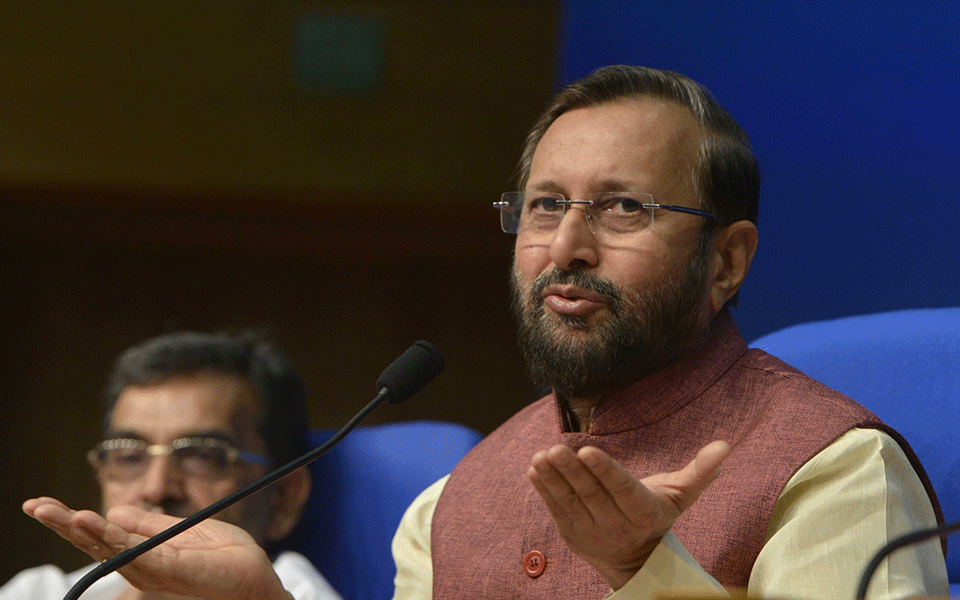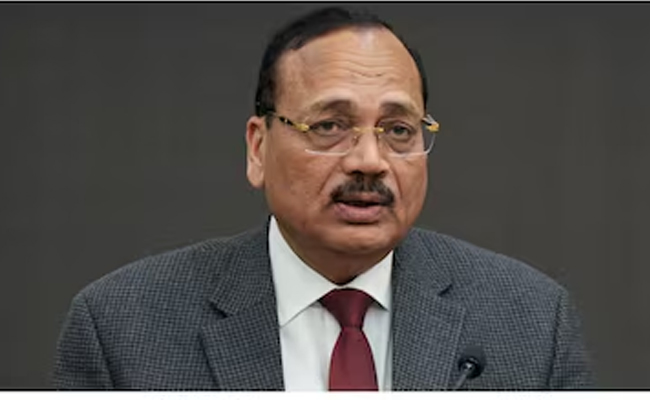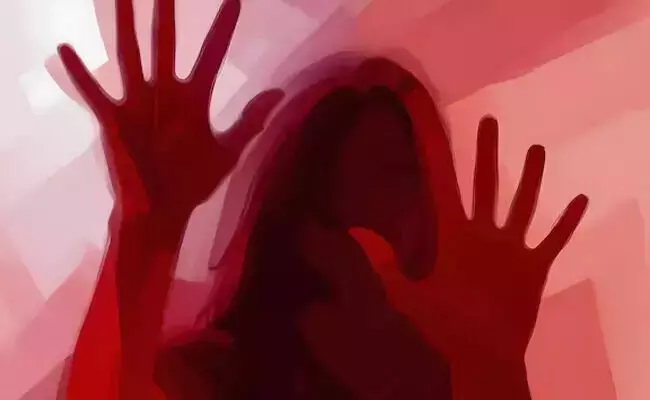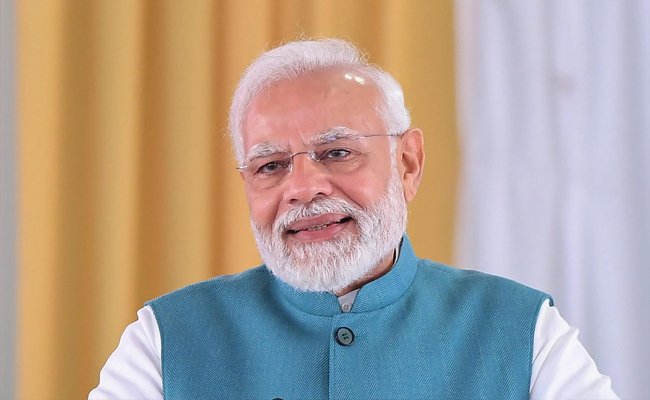New Delhi, July 9 : Three private universities - BITS (Pilani), Manipal Academy of Higher Education and Jio Institute - were awarded the status of ‘institutions of eminence’ by the Centre on Monday.
Government institutions such as the Indian Institute of Science, Bengaluru, and the Indian Institutes of Technology in Mumbai and Delhi were also awarded the status.
While IISc was ranked first in the all-India NIRF (National Institutional Ranking Framework) rankings of the government in 2018, IIT Bombay and Delhi were ranked third and fourth in the rankings, respectively.
IIT Madras, ranked second, IIT Kharagpur, ranked fifth, JNU, ranked sixth and IIT Kanpur, ranked seven, are not on the list. Manipal was ranked 18th in India by the NIRF and BITS Pilani was ranked 26th.
The surprise entry was Jio Institute, which was not found on the NIRF 2018.
Jio institute is proposed to be set up by Reliance Foundation, led by Nita Ambani. The foundation is the philanthropic arm of Reliance Industries, the largest private company in India. With this, the Jio Institute gets unprecedented freedom from the government’s higher education regulations from its very birth.
As per Government norms, an Institution of Eminence should offer interdisciplinary courses and conduct research in “areas of emerging technology”. It must have a mix of foreign and Indian students and faculty, with “student amenities comparable with that of globally reputed institutions”.
The Jio Institute has none of these. It does not even exist. Yet, it has been declared an “Institution of Eminence”, at par with the Indian Institutes of Technology at Delhi and Bombay, the Indian Institute of Science in Bangalore, the Birla Institute of Technology at Pilani, Rajasthan, which was set up in 1964, and the Manipal Academy of Higher Education, which began with Kasturba Medical College in 1953.
PTI had reported on March 11, 2018, that Reliance Foundation was planning to establish a university for cutting-edge research and innovation.
Union Minister of Human Resource Development Prakash Javadekar tweeted about the decision to select these six institutions: “Yet another landmark initiative of @narendramodi government. The #instituteofeminence are selected by the experts panel and today we are releasing list of six universities -- three each in public and private sector.”
The University Grants Commission (UGC) - which is going to be replaced by Higher Education Commission of India (HECI) - and the All India Council for Technical Education (AICTE), will lose the power to regulate these institutions, which are expected to break into the top 500 in the world in a decade.
Let the Truth be known. If you read VB and like VB, please be a VB Supporter and Help us deliver the Truth to one and all.
Jaisalmer (PTI): Pushing for a "unified judicial policy", Chief Justice of India Surya Kant on Saturday said technology can help align standards and practices across courts, creating a "seamless experience" for citizens, regardless of their location.
He said high courts -- due to the federal structure -- have had their own practices and technological capacities, and "regional barriers" can be broken down with technology to create a more unified judicial ecosystem.
Delivering the keynote address at the West Zone Regional Conference in Jaisalmer, Kant proposed the idea of a "national judicial ecosystem" and called for an overhaul of India's judicial system with the integration of technology.
"Today, as technology reduces geographical barriers and enables convergence, it invites us to think of justice not as regional systems operating in parallel, but as one national ecosystem with shared standards, seamless interfaces, and coordinated goals," he said.
He emphasised how the role of technology in the judiciary has evolved over time.
"Technology is no longer merely an administrative convenience. It has evolved into a constitutional instrument that strengthens equality before the law, expands access to justice, and enhances institutional efficiency," he said, highlighting how digital tools can bridge gaps in the judicial system.
Kant pointed out that technology enables the judiciary to overcome the limitations of physical distance and bureaucratic hurdles.
"It allows the judiciary to transcend physical barriers and bureaucratic rigidities to deliver outcomes that are timely, transparent and principled," he said, adding that the effective use of technology can modernise the delivery of justice and make it more accessible to citizens across the country.
The CJI called for implementing a "unified judicial policy".
He said India's judicial system has long been shaped by its federal structure, and different high courts have their own practices and technological capacities.
"India's vast diversity has led to different high courts evolving their own practices, administrative priorities and technological capacities. This variation, though natural in a federal democracy, has resulted in uneven experiences for litigants across the country," he said.
Kant underscored that predictability is crucial for building trust in the judicial system.
"A core expectation citizens place upon the courts is predictability," he said, adding that citizens should not only expect fair treatment but also consistency in how cases are handled across the country.
He pointed to the potential of technology in improving predictability.
"Technology enables us to track systemic delays and make problems visible rather than concealed," he said.
By identifying areas where delays occur, such as in bail matters or cases involving certain types of disputes, courts can take targeted action to address these issues and improve efficiency, Kant said.
The CJI explained that data-driven tools could identify the reasons behind delays or bottlenecks, allowing for faster, more focused solutions.
"Technology enables prioritisation by flagging sensitive case categories, monitoring pendency in real time and ensuring transparent listing protocols," he said.
Justice Surya Kant also discussed the importance of prioritising urgent cases where delays could result in significant harm. He highlighted his recent administrative order that ensures urgent cases, such as bail petitions or habeas corpus cases, are listed within two days of curing defects.
"Where delay causes deep harm, the system must respond with urgency," he stated, explaining that technology can help courts identify and expedite such cases.
Kant also raised the issue of the clarity of judicial decisions.
He noted that many litigants, despite winning cases, often struggle to understand the terms of their judgment due to complex legal language.
"Although the orders had gone in their favour, they remained unsure of what relief they had actually secured because the language was too technical, vague or evasive to understand," he said.
He advocated for more uniformity in how judgments are written.
"A unified judicial approach must therefore extend to how we communicate outcomes," he said.
The CJI also discussed the role of AI and digital tools in improving case management. He pointed to the potential of AI-based research assistants and digital case management systems to streamline judicial processes.
"Emerging technological tools are now capable of performing once-unthinkable functions. They can highlight missing precedent references, cluster similar legal questions, and simplify factual narration," he said, explaining how these technologies can help judges make more consistent decisions.
He also highlighted tools like the National Judicial Data Grid and e-courts, which are already helping to standardise processes like case filings and tracking.
Kant reiterated that the integration of technology into the judicial process is not just about improving efficiency but about upholding the integrity of the system and strengthening public trust.
"The measure of innovation is not the complexity of the software we deploy, but the simplicity with which a citizen understands the outcome of their case and believes that justice has been served," he said.





